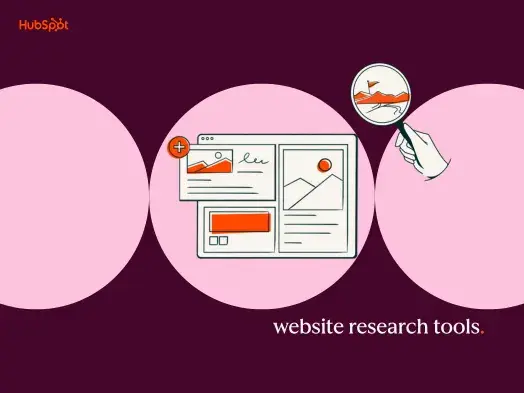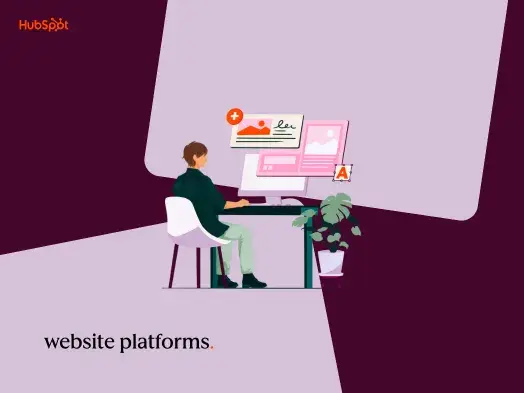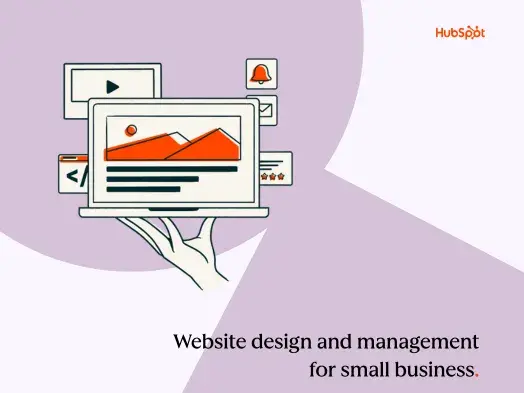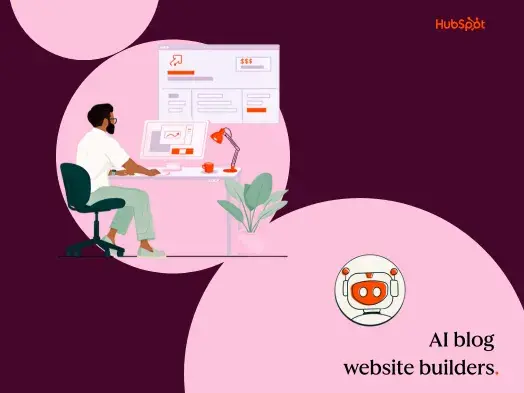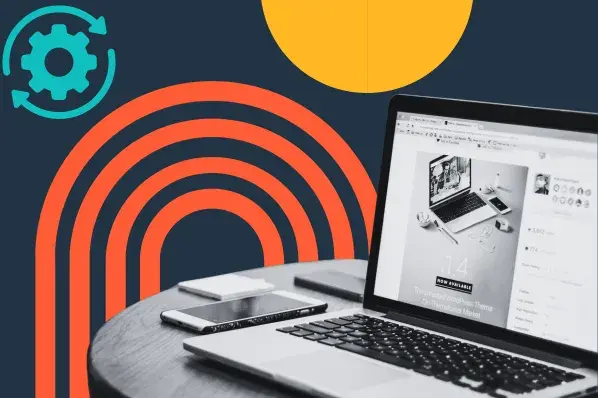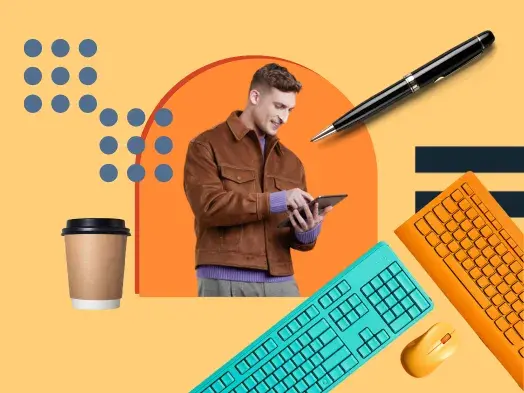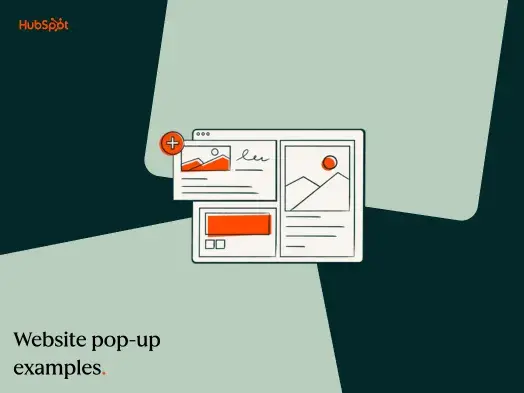I talked to one of HubSpot's very own designers, Lindsay Derby, Product Design Lead on the Sales Enablement team, to discuss why designers can take a deep breath and quit worrying about being replaced by AI web design tools. Let's dive in.
Will AI replace web designers?
According to Derby, there certainly are tasks that AI will eliminate. "AI will undoubtedly replace some design tasks," she says. "What I hope to see it replace is tedious tasks with design work that many will find more fulfilling. For me, this means being able to use an AI tool to quickly produce grids and artifacts, allowing me to focus on more strategic things like information architecture and user flow."
Ultimately, the reason the answer to the question, "Will AI replace web designers?" is a clear no is because AI lacks something humans offer that it cannot: Emotional intelligence. "Emotional intelligence is a skill designers have that makes them valuable players," shares Derby. "Empathizing with users is what makes design effective. AI design tools understand and can replicate the more standardized rules, but they are not yet very good at understanding nuance and context."
That doesn't mean, however, that the role of the designer will stay the same in this new era. Derby shares, "I hosted a designer's mixer on the topic "UX in the era of AI" where we brought together around 75 designers of various industries at Inbound. We discussed ethics, ideas, fears, technology, and the future of work. There was a lot of excitement and equal parts skepticism and anxiety. There is still a lot we don't know about how AI will shape the design landscape. It is still early, but the consensus is that designers must adapt to this new technology to stay relevant."
Here are some photos Derby shared with me from the event. What a crowd!
Inbound attendees discuss UX in the era of AI. 
Examples of Why AI Won't Replace Website Designers
I experimented with a few AI web design tools, and it's never been more obvious to me that, while AI might automate some tasks, it will not outright replace designers. The reason? Humans have the ability to brainstorm with you — whereas, with AI, you're handed a finished product. Another reason? Say you approach a designer with reference photos for the site you hope to build. A designer will look at the photo and understand what you're hoping to recreate, whereas you can tell AI what design style you want, and it may not fully grasp what you're referencing.
For example, I used Wix's AI to generate a photo for an ice cream truck's website. I described the desired image as "An ice cream truck in a colorful, yet mature, style." I also selected the "packshot" style of design.
.webp?width=650&height=326&name=image1%20(2).webp) The technology did generate several images for me, but none looked realistic enough or perfectly mirrored the reference photo Wix provides.
The technology did generate several images for me, but none looked realistic enough or perfectly mirrored the reference photo Wix provides.
I figured that maybe the issue was the style I selected, so instead, I picked "Photo." This was the output. Again, as you can see, the photos are clearly AI-generated.
 Next, I tried Durable, an AI tool boasting that it can create a website in 30 seconds. To get started, it asks you to input what your business does, the location, and its name. Again, I used the ice cream truck example and input that as my business type. I also added my location as New York, New York, and the company name 'Ice Cream Dream.' (Creative, I know.)
Next, I tried Durable, an AI tool boasting that it can create a website in 30 seconds. To get started, it asks you to input what your business does, the location, and its name. Again, I used the ice cream truck example and input that as my business type. I also added my location as New York, New York, and the company name 'Ice Cream Dream.' (Creative, I know.)
It did generate a website for me in a matter of seconds — but the site that it generated didn't fit my aesthetic vision in the slightest. The site was sleek, largely black-and-white (very different from the colorful ice cream truck site of my dreams), and devoid of personality. The generated example did feature a lot of copy, which AI clearly generated. How can I tell? The copy was awkward — in real life, no copywriter would say "New York, New York." Mind you, this is an easy fix — but it does show that AI doesn't always get it right.
 The background photo in this portion of the website also struck me as odd — it's clearly an AI-generated photo and doesn't contribute to helping site visitors get a feel for the ice cream truck itself, just the person scooping the ice cream. Additionally, the AI added an 'Order now' button, which doesn't make much sense in the context of an ice cream truck you'd just walk up to.
The background photo in this portion of the website also struck me as odd — it's clearly an AI-generated photo and doesn't contribute to helping site visitors get a feel for the ice cream truck itself, just the person scooping the ice cream. Additionally, the AI added an 'Order now' button, which doesn't make much sense in the context of an ice cream truck you'd just walk up to.
 You can click the 'regenerate' button — and I did, in hopes of the AI tool producing a more personable website. However, it simply rearranged what it already had and didn't create anything more visually appealing.
You can click the 'regenerate' button — and I did, in hopes of the AI tool producing a more personable website. However, it simply rearranged what it already had and didn't create anything more visually appealing.
Derby has also experienced disappointment with AI tools. "I was recently playing around FigGPT to test out its design capabilities and was very underwhelmed," she shares. "I asked it to design a simple list layout, and simple was the key word there. It generalizes and falls to take in full context."
After discussing the limitations and potential disappointments with existing AI design tools, it's crucial to highlight innovations making significant strides in bridging the gap between AI capabilities and human creativity. Divi AI is a breakthrough tool in web design technology.
Divi AI stands out because it's designed with the understanding that successful web design isn't just about automating tasks; it's about enhancing the collaboration between the designer's creativity and AI's efficiency. Unlike other tools that might struggle with context or nuance, Divi AI leverages advanced algorithms to interpret design intentions more accurately, thereby facilitating a more refined design process that respects the designer's creative lead.
Moreover, Divi AI integrates seamlessly into the web design workflow, offering features that streamline the design process without oversimplifying the complexities of creative work. From generating design elements that match a brand's aesthetic to writing content based on the specific page’s context, Divi AI acts not just as a tool, but as a design partner.
This approach aligns perfectly with Lindsay Derby's sentiments, highlighting the importance of adaptability and the synergy between designers and AI technology. As the field of web design continues to evolve, tools like Divi AI are at the forefront, showcasing how AI can enhance, rather than replace, the invaluable touch of human creativity in crafting engaging and effective web experiences.
Web Design & AI: Evolving Together
We haven't seen the end of how AI website design tools will evolve. It's reasonable to deduct that in the future, AI web design tools will be better at taking into account nuance.
However, AI won't replace web designers because the technology still lacks that key component of emotional intelligence and understanding. "People are creative and industrious," says Derby. "Designers are, and have had to be, adaptable as we work in a field ever-evolving with technology, trends, and the world. AI is just another technology we will learn to use to make us better at our craft."
Website Design


.png?height=613&width=1920)

